AMSI Winter School
For 2 weeks, I’ve been teaching at and attending the AMSI Winter School at QUT (Mastodon thread about it here). The winter school is an annual event for postgrads, early-career researchers, and industry professionals, and about 40 students attended this year.
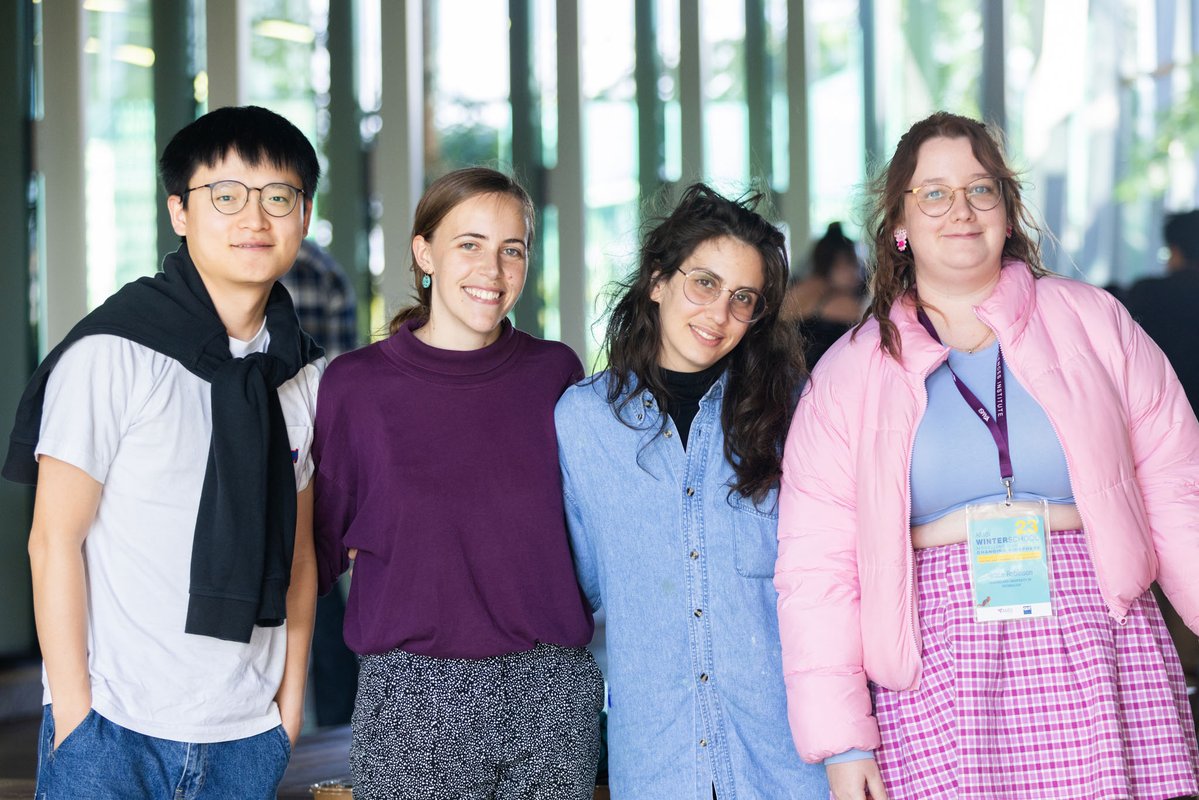
Some students from the Winter School.
I was one of four presenters on the theme Modelling Our Changing Biosphere. I taught about evolutionary game theory, and we also learnt about modelling fisheries (with Nokuthaba Sibanda from University of Wellington), reinforcement learning (with Carl Boettiger from University of California), model sloppiness (with Matthew Adams from Queensland University of Technology), and sequential Monte Carlo methods (with visitors from the concurrent SMC Downunder Workshop).
My goal for the 9 hours was to introduce classical game theory, Maynard Smith ESS, replicator dynamics, and group games. The latter gave me an opportunity to share new theory I recently learnt about the connection between evolutionary stability in nonlinear public goods games and Bernstein polynomials (see blog post here).
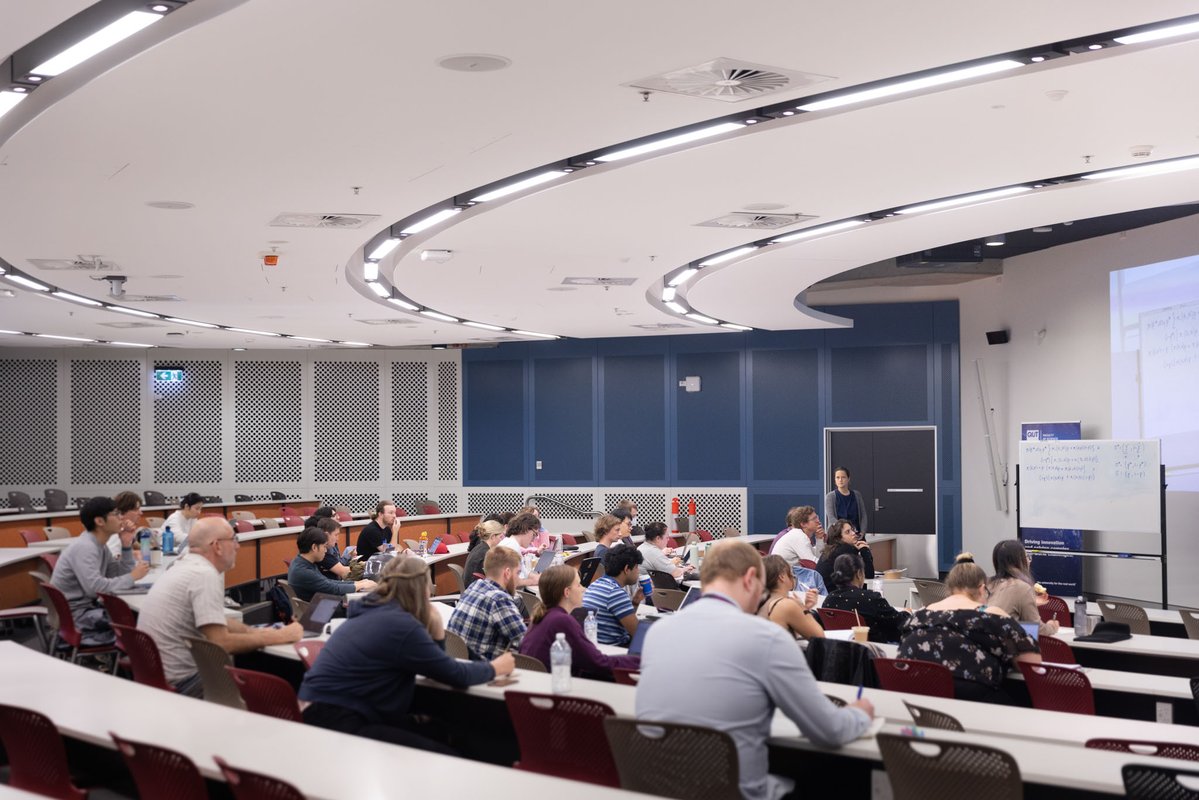
The class at work.
It was important to me that a student with no background in either game theory nor evolutionary dynamics would be able to follow along, so I created a hybrid-style series of lectures where I would talk for a while, and then we would play a game-theoretic game or the students would try to solve an exercise using the techniques I just presented.
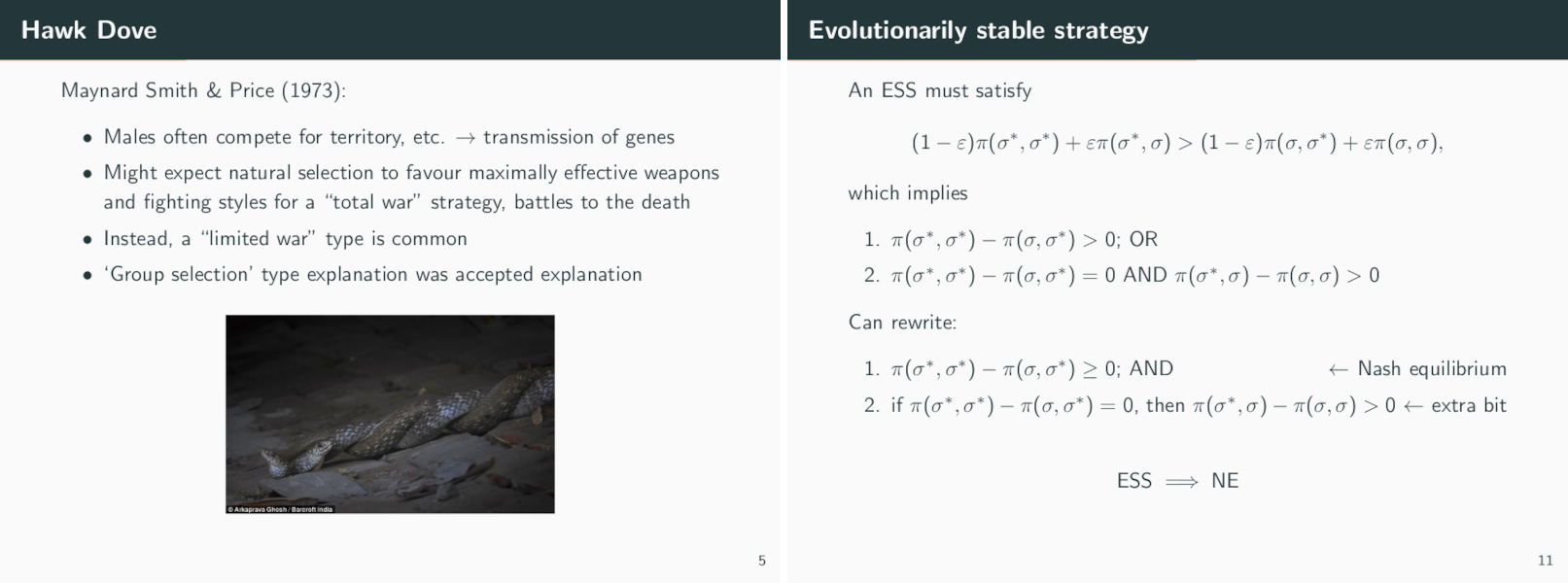
Some slides from my lectures.
I took inspiration from a series of lectures by Ben Polak created for the Open Yale Game Theory course. I stumbled across them a few years ago in podcast form, and I would listen to them in the mornings as I rode to work. His lectures are so clear that, even without the video to see what he wrote on the board, I was able to follow what was happening.
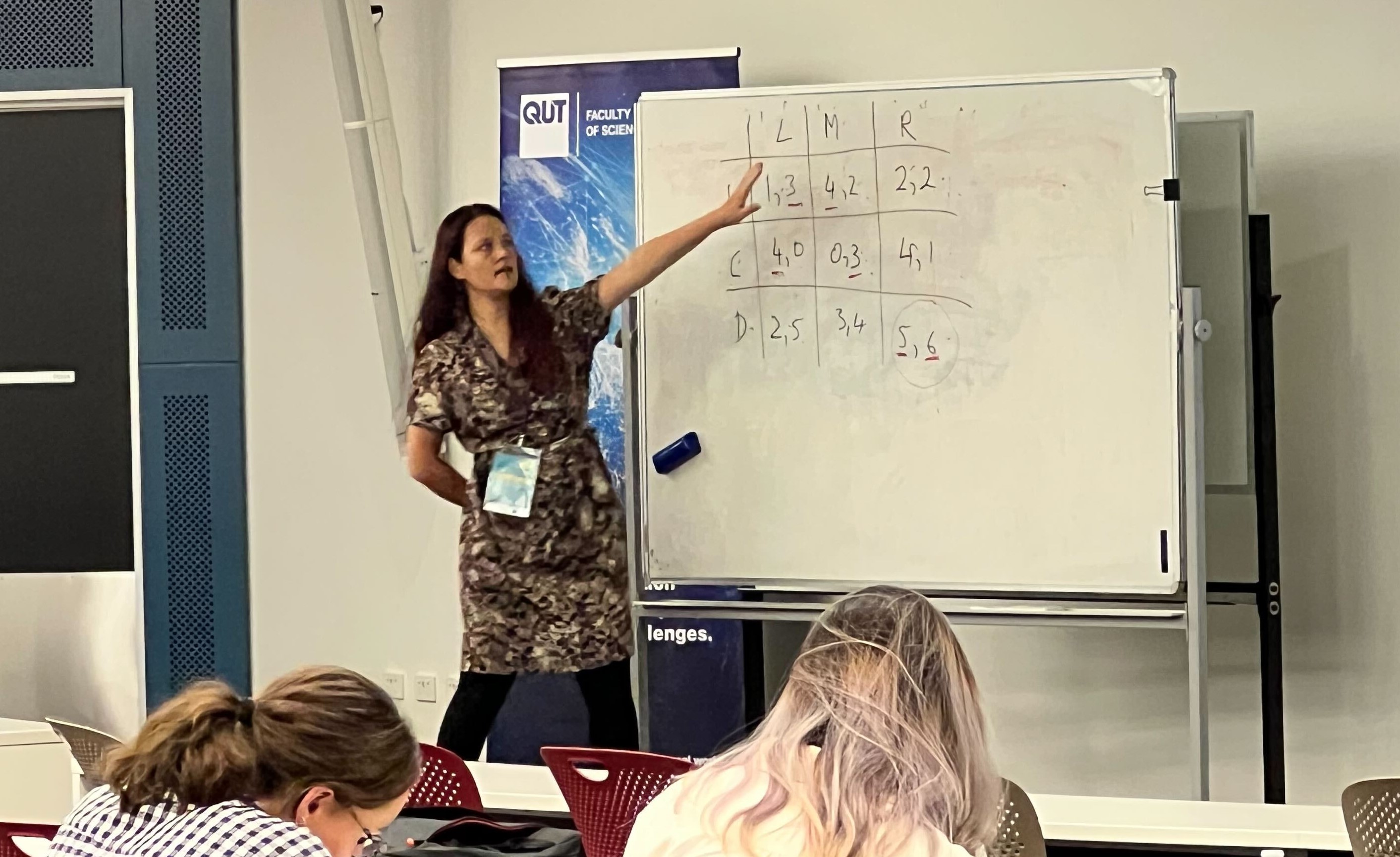
Me lecturing.
We had a really enthusiastic bunch of students. One student, Christopher Brown, even coded up an Axelrod-style tournament for us to play during the fortnight. He added the twist that the tournament would run in an evolutionary manner, with the abundance of each strategy changing depending upon its payoff in the previous generation.
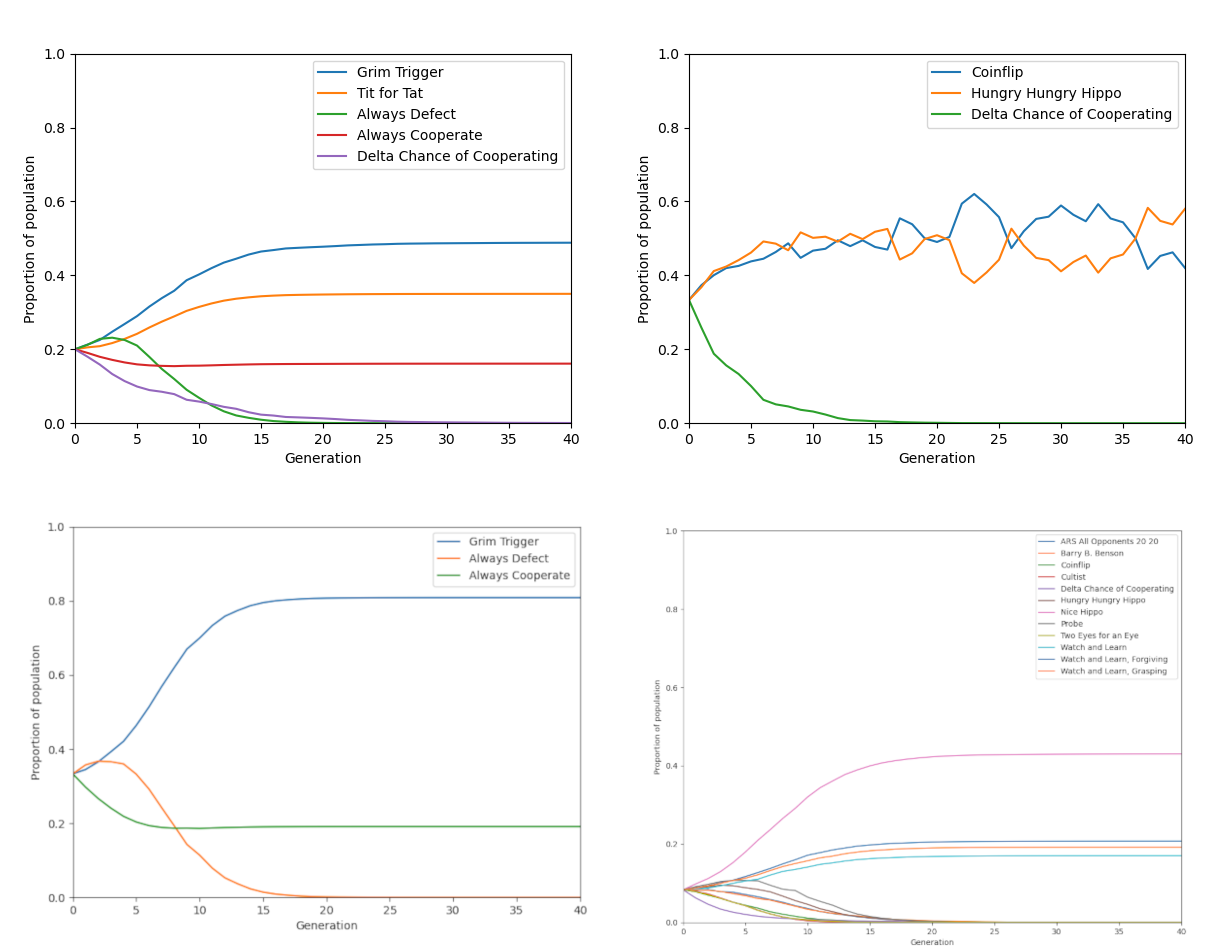
Some examples from the Christopher Tournament as the workshop progressed and more students submitted their strategies.
We had some excellent student presentations on a diverse range of topics.
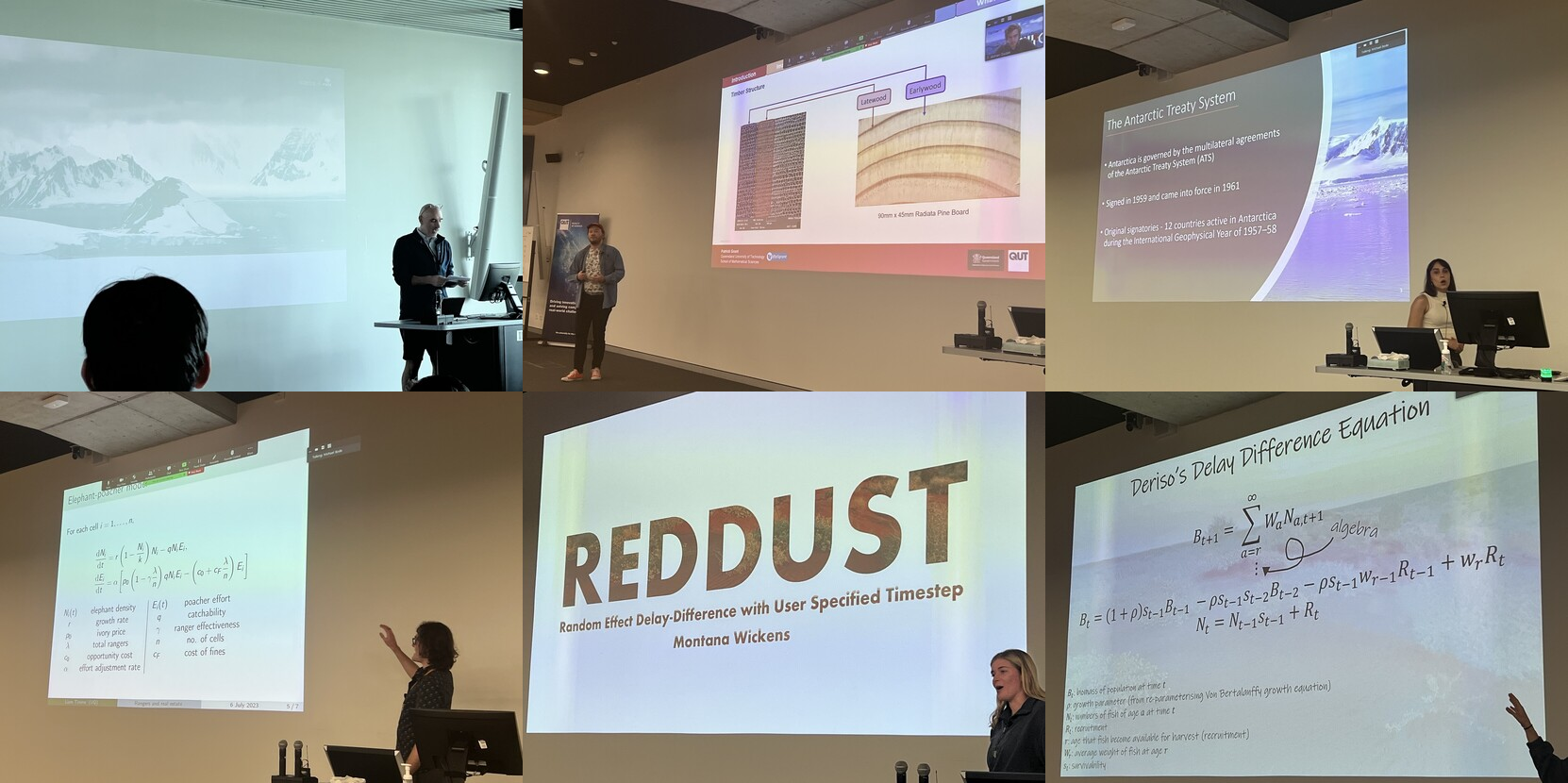
Student presentations. The line ‘and by a bunch of algebra’ got a chuckle :-)
I had a lot of fun teaching, and I also learnt a lot from attending the other courses and presentations. I highly recommend volunteering for an AMSI Winter School; it is very rewarding.
Here’s some feedback I received at the end of the course.
Nadiah’s game theory course was fascinating, and she made the process of learning very interactive by constantly asking the audience questions and performing trial runs of games through us.
Nadiah and Matthew were standout speakers. Having an audience with different levels of exposure to a topic is difficult but they made specific effort to ensure that everyone could understand their material.
Nadiah’s evolutionary game theory were fascinating and very engaging. It’s a topic I’ve read about, and found very interesting, before, but she still kept it engaging throughout, and thought parts of it that I hadn’t encountered before.
Nadiah has such a pleasant way of teaching that was really engaging.
Nadiah was the best from my point of view, some of what I was looking for is related to some of the approaches I have been considering. This presenter allowed time for people to work through the problems and then explained the steps through the problems.
Dr Nadiah Kristensen made game theory really approachable and engaging.
A special note for Nadiah who made the game theory course interesting and engaging
I appreciated how well structured and inclusive Dr Nokuthaba Sibanda and Dr Nadiah Kristensen’s courses were - the lectures and exercises were thoughtfully designed, easy to follow along and started from first principles.